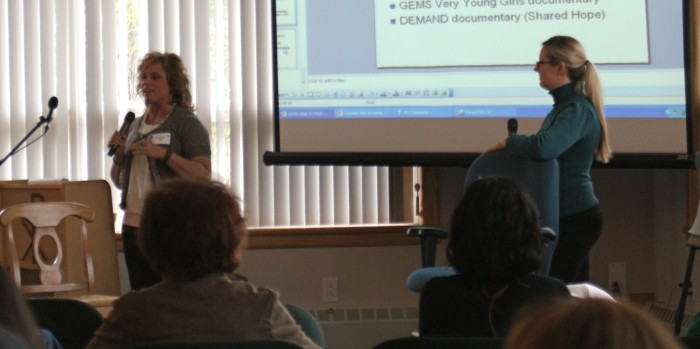Sex trafficking is one of the most inhuman acts in the world. Its utter disregard for basic human rights is staggering. It begs the question, who would do this? Two months ago, the Nejloveanu father-son duo were handed hefty convictions for sex trafficking in the UK. The Nejloveanu family charmed multiple women between the ages of 16 and 25 into selling their bodies for money. They kept the women as their “sexual playthings” through threatening, beating, and degrading them. So why did they do it?
The act of human trafficking is an inexcusable crime but there are some key events in childhood that may be responsible for desensitizing traffickers to violence. A Chicago based study of 25 ex-pimps found that 76% experienced sexual assault as a child, with the average age of assault being 9.5!
The study showed that one of the reasons why people start pimping is the influence of other pimps’ wealth. One former pimp praised his father’s success as a pimp and expressed how that caused him to want to join the family business.
“I wanted to be respected like my daddy. He dressed very well, $400 and $500 suits. He drove the best Cadillacs. I wanted all of that. I grew up in it. It gave me the same things I saw my daddy with. I loved pimping.”
 While there is research documenting how pimps control, employ, and recruit women for the sex trade, little is known about why they begin trafficking. According to the Chicago study, another reason why pimps get involved in the industry is the relatively low danger of prosecution compared to the large payoff. The ex-pimps in the Chicago study made anywhere between $150,000 and $500,000 in one year! Marius Nejloveanuand his father made anywhere from $117,000 to $234,000 every year.
While there is research documenting how pimps control, employ, and recruit women for the sex trade, little is known about why they begin trafficking. According to the Chicago study, another reason why pimps get involved in the industry is the relatively low danger of prosecution compared to the large payoff. The ex-pimps in the Chicago study made anywhere between $150,000 and $500,000 in one year! Marius Nejloveanuand his father made anywhere from $117,000 to $234,000 every year.
From the case of the Nejloveanu family and the Chicago Study we can infer two possible reasons why pimping begins: the hefty income and the lack of danger. The payoff for pimping can become less advantageous by making it easier to convict traffickers, increasing the penalties, and requiring a well trained police force to be present in areas of pimping. Lastly, it is clearly important for interventions in child sexual abuse and physical violence, which are precursors of pimping and trafficking and contribute to transforming victims into victimizers.
 Shared Hope was joined by District Attorney John Adams, Representative David Maloney, Detective Lee Wiley from the Montgomery Police Department, Julie Janovsky from Polaris Project, and survivor Jennifer Spry. Detective Wiley shared local stories, techniques and information on DMST, while Ms. Janovsky focused on law and policy. The testimony given by Ms. Spry was so powerful that it wrapped up with a standing ovation!
Shared Hope was joined by District Attorney John Adams, Representative David Maloney, Detective Lee Wiley from the Montgomery Police Department, Julie Janovsky from Polaris Project, and survivor Jennifer Spry. Detective Wiley shared local stories, techniques and information on DMST, while Ms. Janovsky focused on law and policy. The testimony given by Ms. Spry was so powerful that it wrapped up with a standing ovation! world’s “oldest profession.” In today’s world, societal objectification of women is rampant, particularly in advertising which plays an integral role in men’s perception of women physiologically. As with many psychological issues, theories tend to split between environmental factors or biological factors. However, many fail to acknowledge that both the innate biological factors along with environmental factors help physically shape the human brain, particularly in our youth. The young mind is often likened to a “sponge,” in that environmental factors can determine biological changes in the brain’s structure. Although Fiske’s study shows the biological hardwiring of the male brain, we have to consider that this neurological reaction could be a result of societal, environmental input.
world’s “oldest profession.” In today’s world, societal objectification of women is rampant, particularly in advertising which plays an integral role in men’s perception of women physiologically. As with many psychological issues, theories tend to split between environmental factors or biological factors. However, many fail to acknowledge that both the innate biological factors along with environmental factors help physically shape the human brain, particularly in our youth. The young mind is often likened to a “sponge,” in that environmental factors can determine biological changes in the brain’s structure. Although Fiske’s study shows the biological hardwiring of the male brain, we have to consider that this neurological reaction could be a result of societal, environmental input.





